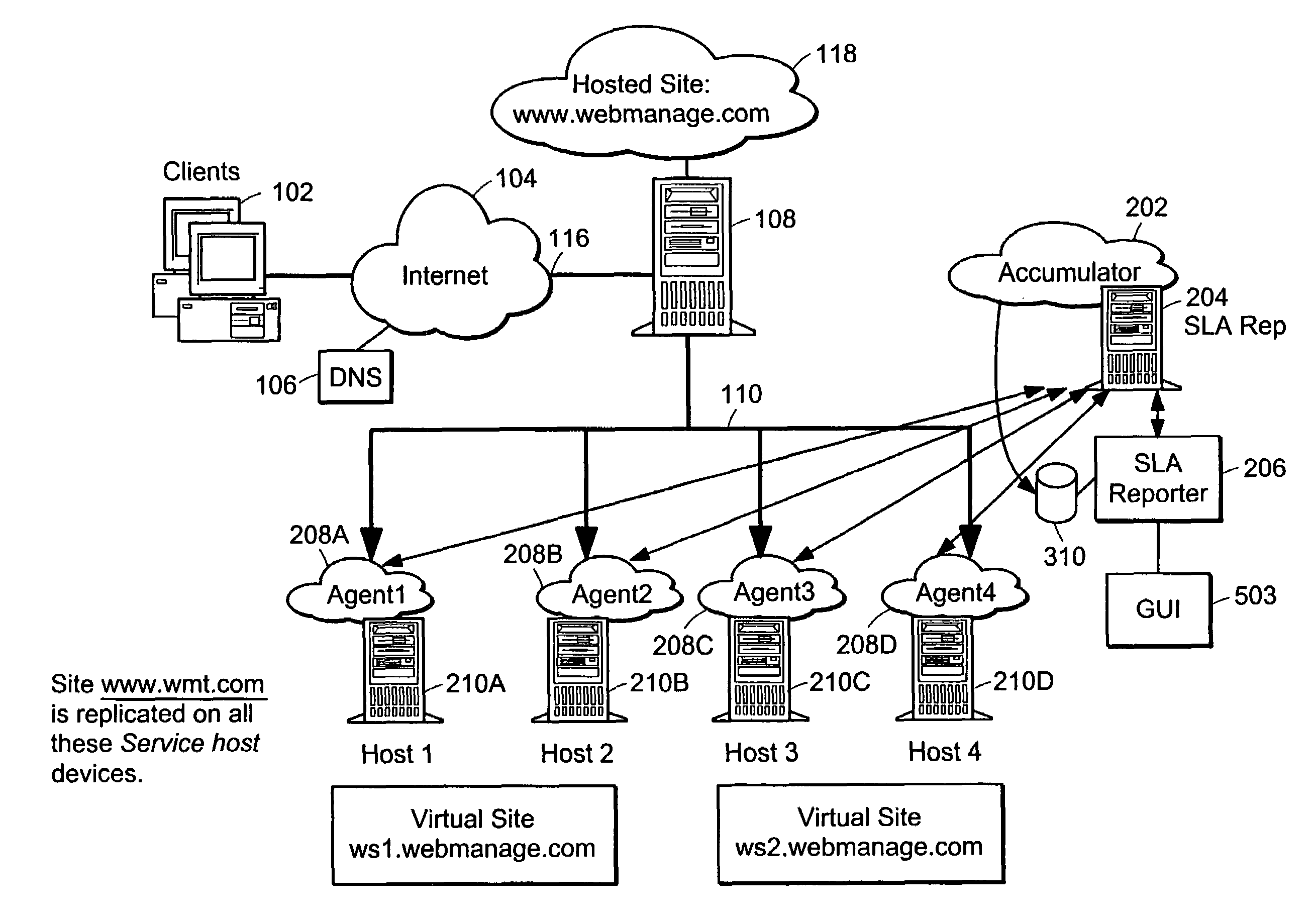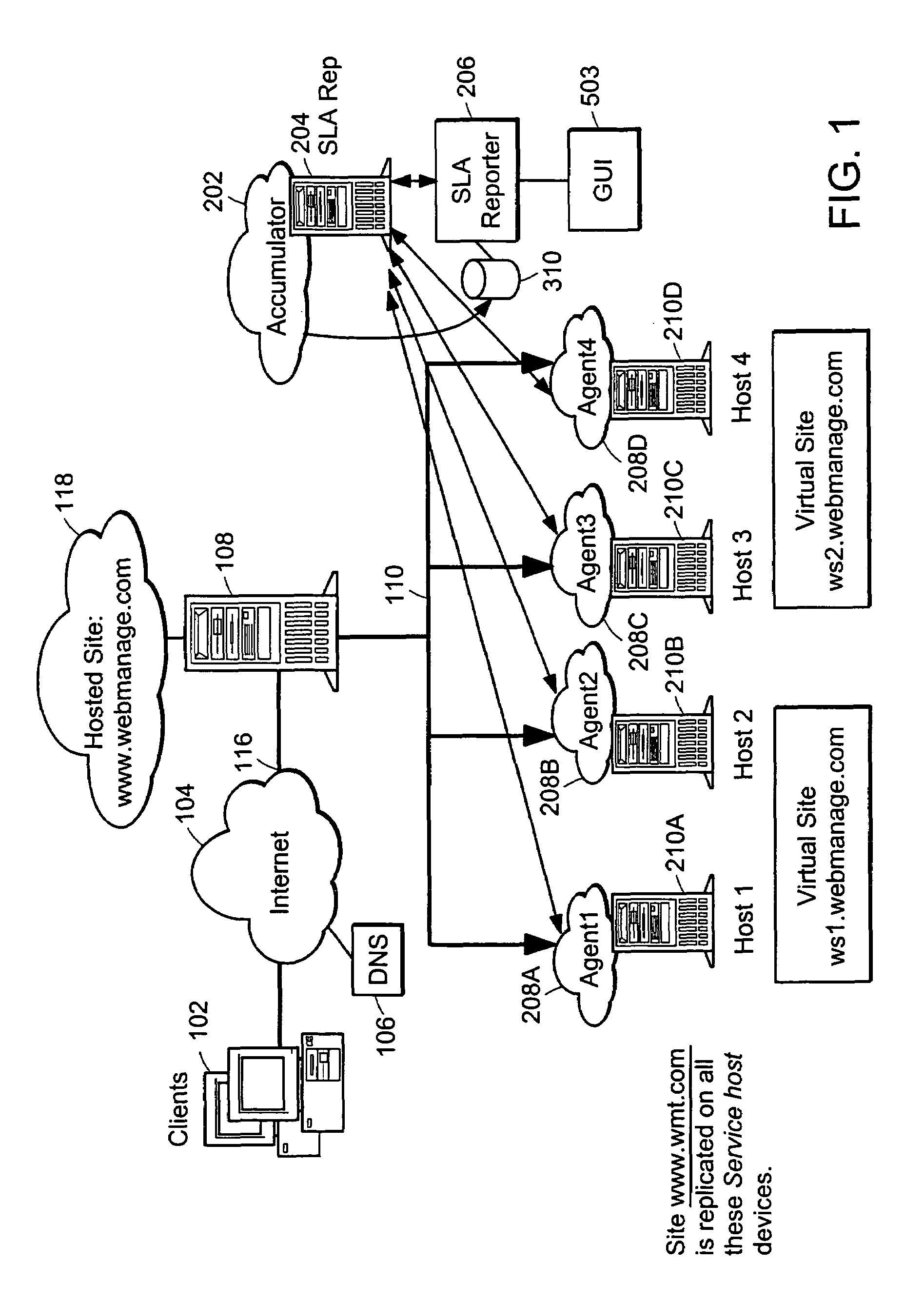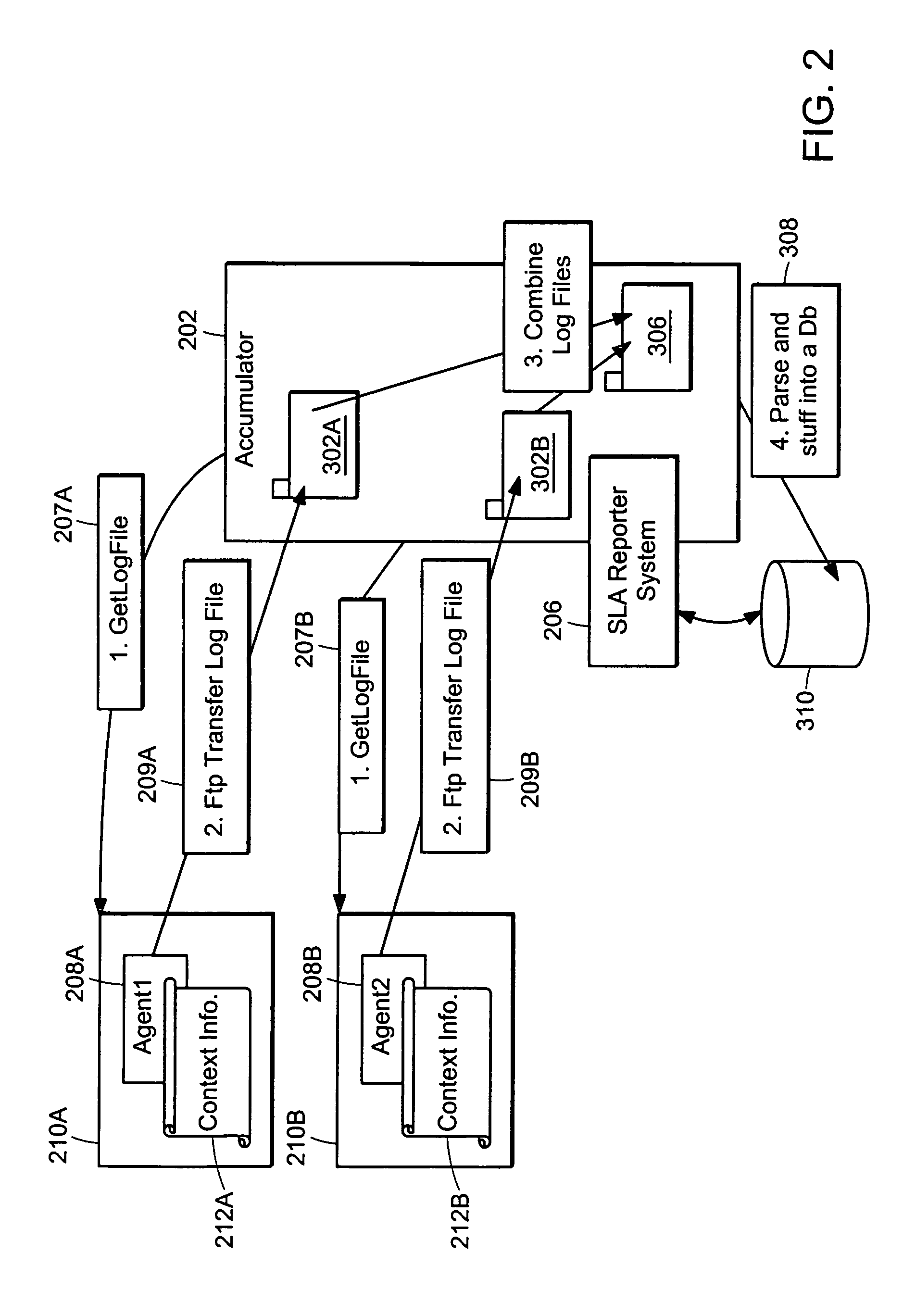Method and apparatus for implementing a service-level agreement
a service-level agreement and service technology, applied in the field of network communication, can solve the problems of not monitoring unable to monitor the number of known network monitors, and only shedding partial light on the performance of web sites
- Summary
- Abstract
- Description
- Claims
- Application Information
AI Technical Summary
Benefits of technology
Problems solved by technology
Method used
Image
Examples
Embodiment Construction
[0023]Networks of computer systems have evolved to include those computers and networks that operate under the defacto standards of the Internet Protocols (IP). A so-called “web browser” in a client computer 102 permits computer users to access the internet 104 and all of the compatible web sites, as shown in FIG. 1. A user typically enters the name of a web site 118 (the domain name) into the web browser on the user's (client) computer 102. The web browser then uses the Internet services to query a Domain Name Server 106 to locate the address of a web server which hosts the web site, and to receive an Internet address for the web server. The user's web browser then uses the Internet services to contact the web server 108 at the designated Internet address with transactions for the web site 118.
[0024]The web site 118 may be hosted on a web server that is available on a single computer that will respond to the transaction itself (e.g., a request, or information), or it may be a distr...
PUM
 Login to View More
Login to View More Abstract
Description
Claims
Application Information
 Login to View More
Login to View More - R&D
- Intellectual Property
- Life Sciences
- Materials
- Tech Scout
- Unparalleled Data Quality
- Higher Quality Content
- 60% Fewer Hallucinations
Browse by: Latest US Patents, China's latest patents, Technical Efficacy Thesaurus, Application Domain, Technology Topic, Popular Technical Reports.
© 2025 PatSnap. All rights reserved.Legal|Privacy policy|Modern Slavery Act Transparency Statement|Sitemap|About US| Contact US: help@patsnap.com



